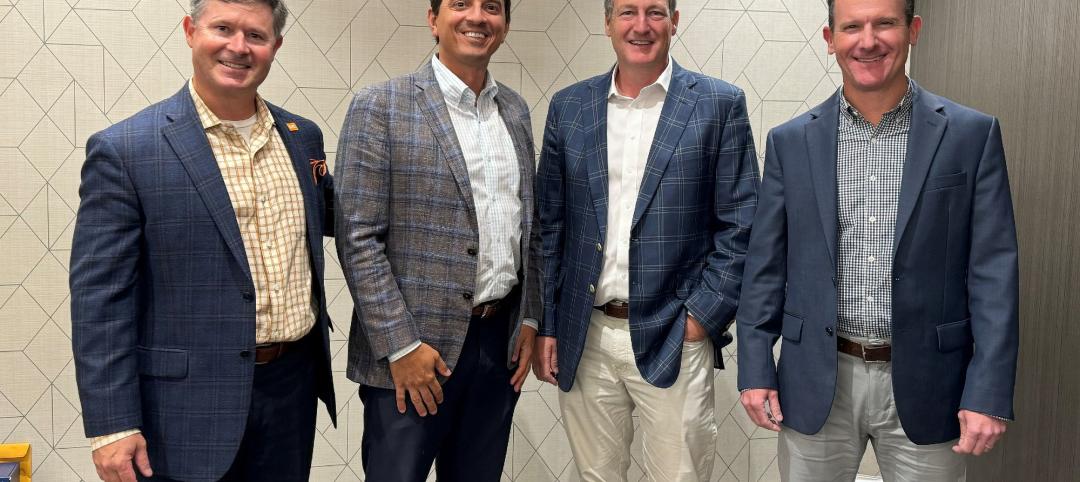The Enterprise Rose Architectural Fellowship and architect Lawrence Scarpa, FAIA, have been selected as the 2017 recipients of the Collaborative Achievement Award, which recognizes and encourages distinguished achievements of allied professionals, clients, organizations, architect teams, knowledge communities, and others who have had a beneficial influence on or advanced the architectural profession. The recipients will be honored at the AIA Conference on Architecture 2017 in Orlando.
Enterprise Rose Architectural Fellowship
Launched in 2000 by affordable housing and community development organization Enterprise Community Partners, The Enterprise Rose Architectural Fellowship is recognized for cultivating a generation of architects committed to bringing the economic, health and education benefits of quality design to low-income communities. Enterprise believes architects are a critical part of the solution to end the growing housing insecurity crisis in the U.S. which forces more than one in four renters to pay at least 50 percent of their income on their home, risking their health, education and economic mobility.
Founded with a mission to integrate ideals of design excellence within organizations that work with underserved communities, the fellowship has paired its fellows with over 75 organizations serving diverse geographies and communities. Rose Fellows, represented by the country’s finest early-career architects, are continually engaged in pressing issues and propelling the profession forward. Partnering emerging designers with community developers for three years, the fellowship is the premier career path for young architects to support public interest design. To date, the 69 fellows have created or preserved more than 12,000 affordable homes across the country. Fellows sharpen essential architectural skills while developing financing, policy, community engagement and organizing skills, as part of the fellowship's effort to develop architectural leaders who have the empathy, humility and experience to be effective community advocates.
The impact and success of the Enterprise Rose Architectural Fellowship is felt in its ability to define and influence public policy and the frameworks for the design of buildings and communities.
Lawrence Scarpa, FAIA
A unique mix of design excellence, social responsibility, stewardship, and service to the profession has defined Lawrence Scarpa’s 30-year career in architecture. In 2001 Scarpa and Angela Brooks, FAIA, co-founded Livable Places, a nonprofit policy and development organization that actively promotes affordable and sustainable communities. Comprising a cadre of developers, advocates, architects, and bankers led by Scarpa, Livable Places has played an instrumental role in a number of policy changes in California, setting the stage for transformation of the state’s communities.
In Los Angeles the A+D Architecture and Design Museum, which Scarpa co-founded, has established a keen awareness of architecture and design in the everyday life of its visitors. For the past 15 years the museum’s progressive exhibitions, youth-oriented education programs, and community events have celebrated the built environment and examined the issues surrounding it. The museum annually hosts AIA/LA’s 2x8 symposium and exhibition, which Scarpa organized and developed as a Chapter board member. The program highlights exemplary student work from architecture and design institutions throughout California.
Modeled after the Mayors’ Institute on City Design, the Affordable Housing Design Leadership Institute, an initiative devised by Scarpa and Maurice Cox, FAIA, in 2008, assembles leaders in affordable housing for a two-and-a-half-day seminar focused on innovation and best practices. Now administered by Enterprise Community Partners, where Scarpa is an advisory board member, the institute provides year-round assistance to organizations through the Enterprise Rose Architectural Fellowship program and has enabled 60 nonprofits and community groups throughout the country better their communities. The jury for the 2017 Collaborative Achievement Award includes: Illya Azaroff, AIA, (Chair), +LAB architects; Hans Butzer, AIA, Butzer Architects and Urbanism; Damian Farrell, FAIA, Damian Farrell Design Group; Jared Edgar Mcknight, Assoc. AIA, Wallace Roberts & Todd, LLC and Lynn M. Perkins, AIA, Bill & Melinda Gates Foundation.
Related Stories
MFPRO+ News | Jun 3, 2024
Seattle mayor wants to scale back energy code to spur more housing construction
Seattle’s mayor recently proposed that the city scale back a scheduled revamping of its building energy code to help boost housing production. The proposal would halt an update to the city’s multifamily and commercial building energy code that is scheduled to take effect later this year.
Mass Timber | May 31, 2024
Mass timber a big part of Western Washington University’s net-zero ambitions
Western Washington University, in Bellingham, Wash., 90 miles from Seattle, is in the process of expanding its ABET-accredited programs for electrical engineering, computer engineering and science, and energy science. As part of that process, the university is building Kaiser Borsari Hall, the 54,000-sf new home for those academic disciplines that will include teaching labs, research labs, classrooms, collaborative spaces, and administrative offices.
Construction Costs | May 31, 2024
Despite challenges, 2024 construction material prices continue to stabilize
Gordian’s Q2 2024 Quarterly Construction Cost Insights Report indicates that supply chain issues notwithstanding, many commodities are exhibiting price normalization.
University Buildings | May 30, 2024
Washington University School of Medicine opens one of the world’s largest neuroscience research buildings
In St. Louis’ Cortex Innovation District, Washington University School of Medicine recently opened its new Jeffrey T. Fort Neuroscience Research Building. Designed by CannonDesign and Perkins&Will, the 11-story, 609,000-sf facility is one of the largest neuroscience buildings in the world.
Architects | May 30, 2024
AE firm Goodwyn Mills Cawood merges with Southland Engineering
Architecture and engineering firm Goodwyn Mills Cawood (GMC) is further expanding its services through a strategic merger with engineering firm Southland Engineering in Cartersville, Ga.
K-12 Schools | May 30, 2024
Inclusive design strategies to transform learning spaces
Students with disabilities and those experiencing mental health and behavioral conditions represent a group of the most vulnerable students at risk for failing to connect educationally and socially. Educators and school districts are struggling to accommodate all of these nuanced and, at times, overlapping conditions.
MFPRO+ New Projects | May 29, 2024
Two San Francisco multifamily high rises install onsite water recycling systems
Two high-rise apartment buildings in San Francisco have installed onsite water recycling systems that will reuse a total of 3.9 million gallons of wastewater annually. The recycled water will be used for toilet flushing, cooling towers, and landscape irrigation to significantly reduce water usage in both buildings.
Healthcare Facilities | May 28, 2024
Healthcare design: How to improve the parking experience for patients and families
Parking is likely a patient’s—and their families—first and last touch with a healthcare facility. As such, the arrival and departure parking experience can have a profound impact on their experience with the healthcare facility, writes Beth Bryan, PE, PTOE, PTP, STP2, Principal, Project Manager, Walter P Moore.
Urban Planning | May 28, 2024
‘Flowing’ design emphasizes interaction at Bellevue, Wash., development
The three-tower 1,030,000-sf office and retail development designed by Graphite Design Group in collaboration with Compton Design Office for Vulcan Real Estate is attracting some of the world’s largest names in tech and hospitality.
MFPRO+ News | May 28, 2024
ENERGY STAR NextGen Certification for New Homes and Apartments launched
The U.S. Environmental Protection Agency recently launched ENERGY STAR NextGen Certified Homes and Apartments, a voluntary certification program for new residential buildings. The program will increase national energy and emissions savings by accelerating the building industry’s adoption of advanced, energy-efficient technologies, according to an EPA news release.

















